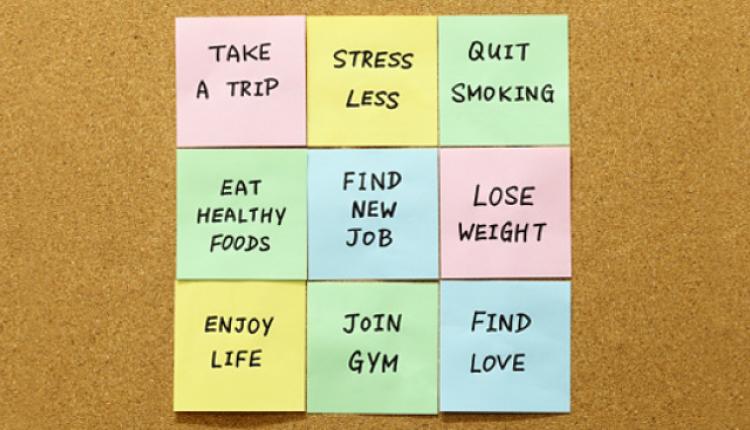A Caregiver’s Guide to Setting Goals

3 KEY STEPS TO AVOIDING GUILT AND MEETING GOALS
Does this sound familiar? Something happens—a milestone birthday, a crisis, or the calendar changes to a new year—and you resolve to get into shape, to save money or to be a better person. But time passes and life gets in the way. The goals you set get forgotten until you step on the scale or have another unexpected expense. Over time, guilt and feelings of failure can build up.
Often, how successful you are at meeting goals isn’t a matter of willpower or dedication. Whether you meet the goals you set may have more to do with how you phrase them. You may be setting yourself up for failure without even realizing it! Next time you decide to do something, try using these three tips as you set your goals.
- Goals need to be realistic. As you think about what you want to achieve, make sure it’s something that fits into your life. You might decide to save $10,000. If your goal is to do that in one year, you’ll need to put away $192 every week. If you can only afford to save $40 a week, you might want to make $10,000 a five-year goal.
- Goals need to be specific. State your goals in concrete, specific words with measurable steps to achieve them. Say you get impatient when your elderly parent asks the same questions over and over. You might think, “I need to be nicer. She can’t help it.” Being “nicer” is hard to measure. Instead, you might come up with three things you can do to help you manage stress so you can react more patiently. “I’ll get a better night’s sleep so I won’t be so tired and crabby. I’ll listen to upbeat music instead of depressing news during my commute. And I’ll count to 10 (and maybe think, ’patience,’) before I react to Mom.”
- Goals need to be stated as a positive action. All too often, we state goals by saying what we won’t do. We’ll quit drinking soda, for example, or cut out junk food. But we don’t say what we will do. Say your goal is to eat better. You’ll want to be specific about what “better” means, and then come up a plan. “Three days a week, I’ll have soup and vegetables for lunch instead of a deli sandwich. The other two days, I’ll have the sandwich, but I’ll have grapes or baby carrots instead of chips.”


